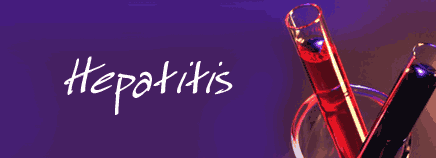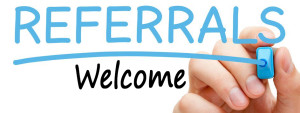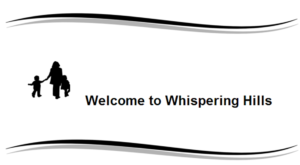
Pregnancy and HIV/AIDS – What You Need to Know
Motherhood is an experience that everyone who wants to, deserves to experience. It is as rewarding as it is life changing, and it is imperative that you are in the best health you can be to start your child’s life the healthiest way possible. What most people don’t realize is that there are ways to get pregnant and not infect your partner or the child. With that said, when embarking on this journey, it is imperative to know that HIV can be spread to your baby during the pregnancy, while in labor, while giving birth, or by breastfeeding. Luckily, you will have many choices to make about lowering the risk of passing HIV to your baby. Just because you have HIV doesn’t mean your child will get HIV. In the United States, before effective treatment was available, about 25 percent of pregnant HIV-positive mothers who didn’t breastfeed and did not receive anti-HIV treatment in pregnancy passed the virus to their babies.
Today, the risk of giving HIV to your newborn is below 2 percent. But you and the baby must get the right HIV drugs at the right times. The steps below can lower the risk of giving HIV to your baby.
- -Get as healthy as possible before becoming pregnant.
- -Start HIV treatment before pregnancy if you need it for your own health. Or, you can start treatment during pregnancy to lower the risk of passing HIV to your baby. If you are already on treatment, do not stop, but do see your doctor right away. Some HIV drugs should not be used while you’re pregnant. For other drugs, you may need a different dosage.
- -Make sure your baby is tested for HIV right after birth. Your doctor or clinic should be experienced in managing babies who have been exposed to HIV. They will tell you what follow-up tests your baby will need, and when.
- -Ask your doctor about starting treatment for your baby right away if your baby is diagnosed with HIV. This may require a number of tests and you may not know until he is 2 to 4 months old.
- -Until you know that your baby is HIV-positive or HIV-negative, ask your pediatric HIV specialist if your baby might benefit from anti-HIV medicines. New research shows that putting a newborn on a 2- or 3-drug anti-HIV medicine plan cuts the infant’s risk of HIV by 50 percent (compared to using one drug only).
- -Ask your doctor about other medicines the baby may need to prevent opportunistic infections until you know for sure whether the baby has HIV.
If you want to get pregnant, or just found out you are pregnant, you need to get to a doctor right away. If you need help finding the resources for you, give us a call and we will be happy to help!

What You Need to Know about Hepatitis
To put it simply, Hepatitis means inflammation of the liver. Unfortunately, nothing about Hepatitis is simple. According to the World Hepatitis Alliance, Hepatitis is a disease that that currently affects more than 500 million people around the world and is responsible for approximately 1.5 million deaths a year. Currently the world’s 8th biggest killer, Viral hepatitis is one of the most underestimated diseases on the planet. Although one in three people around the world have been in contact with a hepatitis virus, many people have no idea what it is.
Viral Hepatitis Transmission
People can be infected with the three most common types of hepatitis in these ways:
- HAV: Ingestion of contaminated fecal matter, even in tiny amounts, from close person-to-person contact with an infected person, sexual contact with an infected person, or contaminated food, drink, or objects.
- HBV: Contact with infectious blood, semen, or other body fluids; sexual contact with an infected person; sharing of contaminated needles, syringes, or other injection drug equipment; and needlesticks or other sharp-instrument injuries. In addition, an infected woman can pass the virus to her newborn.
- HCV: Contact with blood of an infected person, primarily through sharing contaminated needles, syringes, or other injection drug equipment, and, less commonly, blood transfusions, sexual contact with an infected person, birth to an infected mother, and needlesticks or other sharp-instrument injuries.
Chronic HCV is often “silent,” and many people can have the infection for decades without having symptoms or feeling sick. Compared with other age groups, people aged 46 to 64 are 4 to 5 times as likely to be infected with HCV. Any sexual activity with an infected person increases the risk of contracting hepatitis. In particular, unprotected anal sex increases the risk for both HBV and HIV. New data suggest that sexual transmission of HCV among MSM with HIV occurs more commonly than previously believed. (according to the Center for Disease Control)
Viral Hepatitis Prevention
If you have HIV infection, you can lower your risk of contracting hepatitis and other bloodborne viruses by not sharing toothbrushes, razors, or other personal items that may come into contact with an infected person’s blood. Do not get tattoos or body piercings from an unlicensed facility or in an informal setting, which may use dirty needles or other instruments. Just as HIV-positive individuals would not want to engage in behaviors that would put them at risk for hepatitis, these same behaviors would also put others at risk for HIV.
- HAV: The best way to prevent HAV infection is to get vaccinated. The Centers for Disease Control and Prevention (CDC) recommends vaccination for HAV for people who are at risk for HIV infection, including MSM; users of recreational drugs, whether injected or not; and sex partners of infected people.
- HBV: The best way to prevent HBV infection is to get vaccinated. CDC recommends universal vaccination against HBV for people who have or are at risk for HIV infection, including MSM; people who inject drugs; sex partners of infected people; people with multiple sex partners; anyone with a sexually transmitted infection; and health care and public safety workers exposed to blood on the job.
- HCV: There is no vaccine for HCV. CDC estimates that people born during 1945 through 1965 account for nearly 75% of all HCV infections in the United States. The best way to prevent HCV infection is to never inject drugs or to stop injecting drugs if you currently do so by getting into and staying in a drug treatment program. If you continue injecting drugs, always use new, sterile syringes and never reuse or share syringes, needles, water, or other drug preparation equipment. You can also reduce your risk for contracting HCV from sexual contact by
- Abstaining from sexual intercourse.
- Being monogamous.
- Using a condom.
- Avoiding rough sex.
- Getting tested for sexually transmitted diseases and HIV.

…Things You Should Know about HIV and Safer Sex (cont.)
- If you chose to have sex, use a latex condom with EVERY partner. No exceptions.
- Use protection, wear a latex condom.
- Use a new latex condom each time you have vaginal, anal or oral sex.
- Use water based lubricant with latex condoms.
- Never use an oil-based lubricant such as hand lotion or baby oil. It weakens the latex and the condom may break.
- Use a latex barrier (a condom cut in half or a dental dam) if you have oral sex with a women.
- Massage, hugging and masturbation are safe.
- It’s safer not to use drugs.
- Insist on watching your NEW tattoo needle come out of packaging before getting a tattoo. Never share needles or inks for tattooing or piercing.
- NO CONDOM, NO SEX, NO WAY.” tells your partner you’re serious about safer sex.
- Talk about safer sex with EVERY partner before you have sex.
- Ask your partner about his/her sexual history, behaviors and drug usage before you engage in any sexual activity.
- If you are infected and do not inform your sexual partner of your HIV status before sex and you engage in unprotected sex and transmit HIV to that person you have committed a felony.
- Taking a HIV test is the only way to know you are not infected.
- Get tested three to six months after any unprotected exposure.
- You have options. You can buy a home HIV test kit at most drug stores. Then contact the nearest community based organization for counseling or to ask questions. You can also get tested by a doctor, health clinic, community based organization or public testing center.
- Some testing sites keep results confidential while others utilize anonymous testing. Confidential testing uses your real name. You and your doctor will know the results. Anonymous testing doesn’t use your name at all. Only you will know your results.
- People are still dying of AIDS related illnesses.
- THERE IS NO CURE! Remember you are in charge.

15 Things You Should Know about HIV and Safer Sex
- Anyone can get HIV (the virus that causes AIDS)
- HIV attacks your body’s immune system.
- A person with HIV may get sick with certain diseases and then be diagnosed with AIDS.
- Many people who have AIDS in their twenties become infected with HIV in their teens.
- You can be infected with HIV for 10 or more years without having any recognizable symptoms.
- You can’t tell by looking if someone has HIV.
- You can take steps to protect yourself from HIV. Put yourself first. Get tested today.
- If you put yourself at risk you can become infected with HIV. IT DOESN’T MATTER WHO YOU ARE.
- You are at risk any time you exchange body fluids (semen, blood, vaginal fluids or breast milk).
- You can become infected if you have sex with an infected person.
- Unprotected sex among infected partners may cause cross-infection resulting in drug resistance.
- You can also become infected if you share needles or syringes with an infected person.
- HIV is not passed through hugging, hand shaking, and coughing, talking, sneezing or toilet seats, water fountains, bathrooms or eating utensils.
- Safer sex means taking steps to protect yourself.
- Choosing not to have sex is safest.

East Side Story to Host Book Signing for Catherine Wyatt-Morley’s Latest Book: My Life With AIDS, Tragedy to Triumph
Women On Maintaining Education and Nutrition (W.O.M.E.N.) Founder and Chief Executive Officer Catherine Wyatt-Morley will hold a signing for her third book, My Life with AIDS, Tragedy to Triumph, on Saturday, June 29, 2013 from 3 p.m. – 4 p.m. at East Side Story at 1008 Woodland St., Unit B, Nashville, Tenn.
“My Life with AIDS, Tragedy to Triumph addresses difficulties facing minorities, women, and children with HIV/AIDS and the families who are both infected and affected by the disease.” said Wyatt-Morley. “It sounds the alarm to those minorities, women and children at risk of contracting the infection. HIV/AIDS has touched my life in more ways than I could have ever imagined. Here I share the ways the disease has touched me, my children and others.”
Wyatt-Morley’s efforts have been honored with a plaque in the Women’s National Hall of Fame. She received SELF Magazine‘s Women Doing Good award, which honors women changing the world for the better. W.O.M.E.N. is the only 19 year old HIV/AIDS social service, community-based agency founded, organized and administered by an African American mother living with AIDS in Tennessee.
“By letting readers into the lives and inner thoughts of HIV-positive women, Catherine empowers women everywhere, demonstrating the way forward,” says Wendy Horn, PhD., President and Principal Writer, Insight Communications Group. “Her book is enlightening, entertaining, educational, and always moving.”
The event is free and open to the public!

Purpose and…
Live purposefully. You only have one life to get it right. You were born, you live and then you die. Time moves quickly. Time ticks into days, traveling into weeks, progressing into months, falling into years, running into decades. What did you do with the time between ticking, traveling, progressing, falling and running?
When life happens and your midnight hour comes and your mind becomes the battlefield and your body weakens under the pressure and the winds pierce your soul and the storms of life cause torrential downpours and difficulty becomes your second skin and your blood boils in despair and everything seems to come against you and heartbreak rocks your world and the pit of down consumes you and up is located on another planet, live purposefully.
At the end of life material wealth will all be put on a shelf. All that stuff -diamonds, gold, silver- we just can’t get enough- cars, houses, clothes and even your cherished bling won’t mean a thing.
What will matter will be who’s life you made richer, deeper, stronger, meaningful. Empowerment with a purpose! Who will remember you when you are gone? When your last breath has been drawn and you lay hands crossed and the music stops and the dirt covers your hole in the ground and the flowers have withered away and the time between ticking, traveling, progressing, falling and running has passed, did you live purposefully? Each of us has a purpose, a destiny.

You are Invited to Join W.O.M.E.N. at ‘Book on the Bridge’
Women On Maintaining Education and Nutrition to Host “Book on the Bridge”
Celebrating Catherine Wyatt-Morley’s Latest Book: My Life With AIDS, Tragedy to Triumph
Women On Maintaining Education and Nutrition (W.O.M.E.N.) Founder and Chief Executive Officer Catherine Wyatt-Morley will hold a signing for her third book, My Life with AIDS, Tragedy to Triumph on Friday, June 21, 2013 at 5:30 p.m. on the Renaissance Hotel pedestrian bridge at 611 Commerce St., Nashville, Tenn.
“My Life with AIDS, Tragedy to Triumph addresses difficulties facing minorities, women, and children with HIV/AIDS and the families who are both affected and effected by the disease.” said Wyatt-Morley. “It also sounds the alarm to those minorities, women and children at risk of contracting the infection. HIV/AIDS has touched my life in more ways than I could have ever imagined. Here I share the ways the disease has touched me, my children and others.”
W.O.M.E.N will host an evening of celebration to honor Wyatt-Morley on My Life with AIDS, Tragedy to Triumph. The event is free and open to the public, and will take place on the pedestrian bridge connecting the Renaissance Hotel and the Nashville Public Library parking garage. Hors d’oeuvres and refreshments will be offered. Music will be performed by Keith Floyd, as well as moments of inspiration shared by keynote speaker, State Representative Brenda Gilmore, author of the foreword of My Life with AIDS, Tragedy to Triumph, Theodora Pinnock, M.D. as well as Catherine Wyatt Morley.
“By letting readers into the lives and inner thoughts of HIV-positive women, she empowers women everywhere, demonstrating the way forward,” says Wendy Horn, PhD., President and Principal Writer, Insight Communications Group. “Catherine’s book is in turn enlightening, entertaining, educational, and always moving.”
W.O.M.E.N. is the only 19 year old HIV/AIDS social service, community-based agency founded, organized and administered by an African American mother living with AIDS in Tennessee. Catherine’s efforts have been honored with a plaque in the Women’s National Hall of Fame and she is a recipient of SELF Magazine‘s ‘Women Doing Good’ award, which honors women changing the world for the better.






